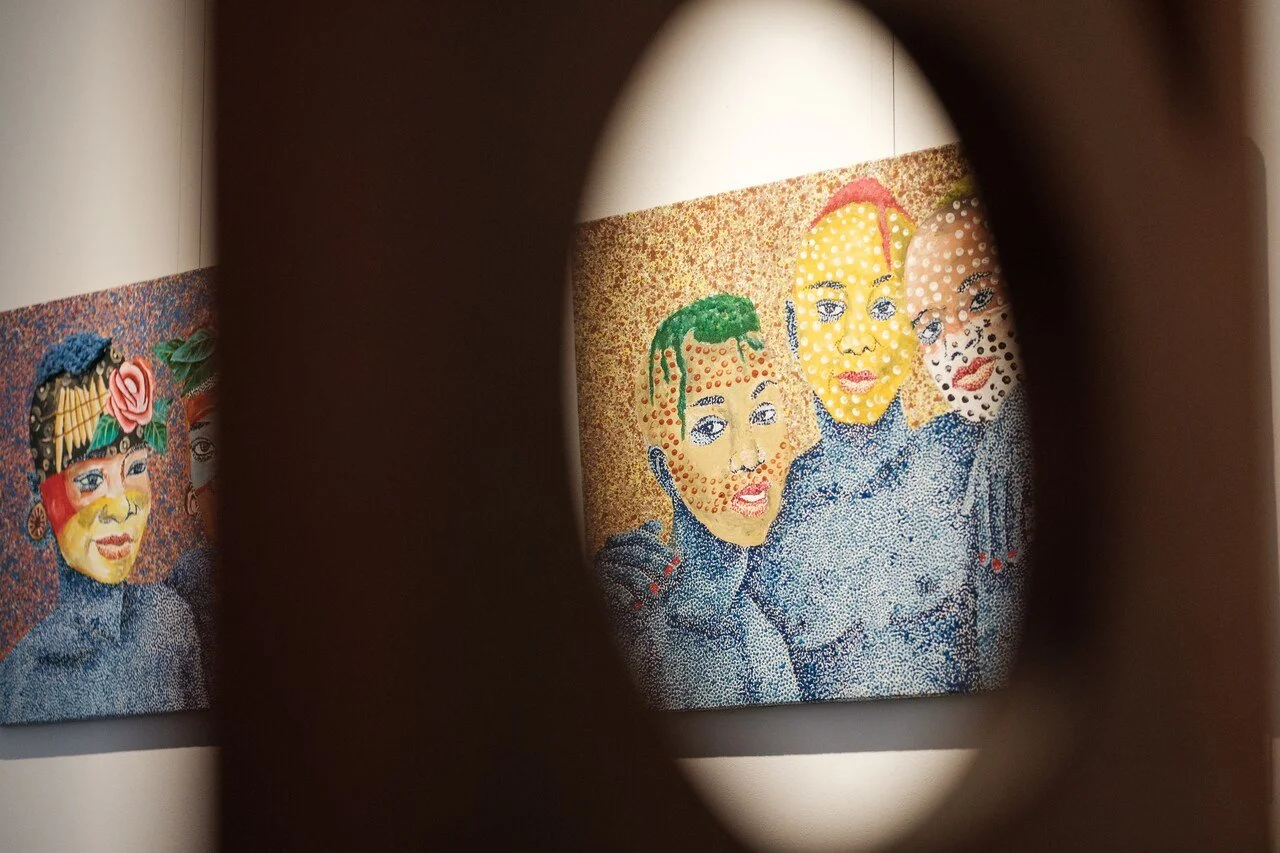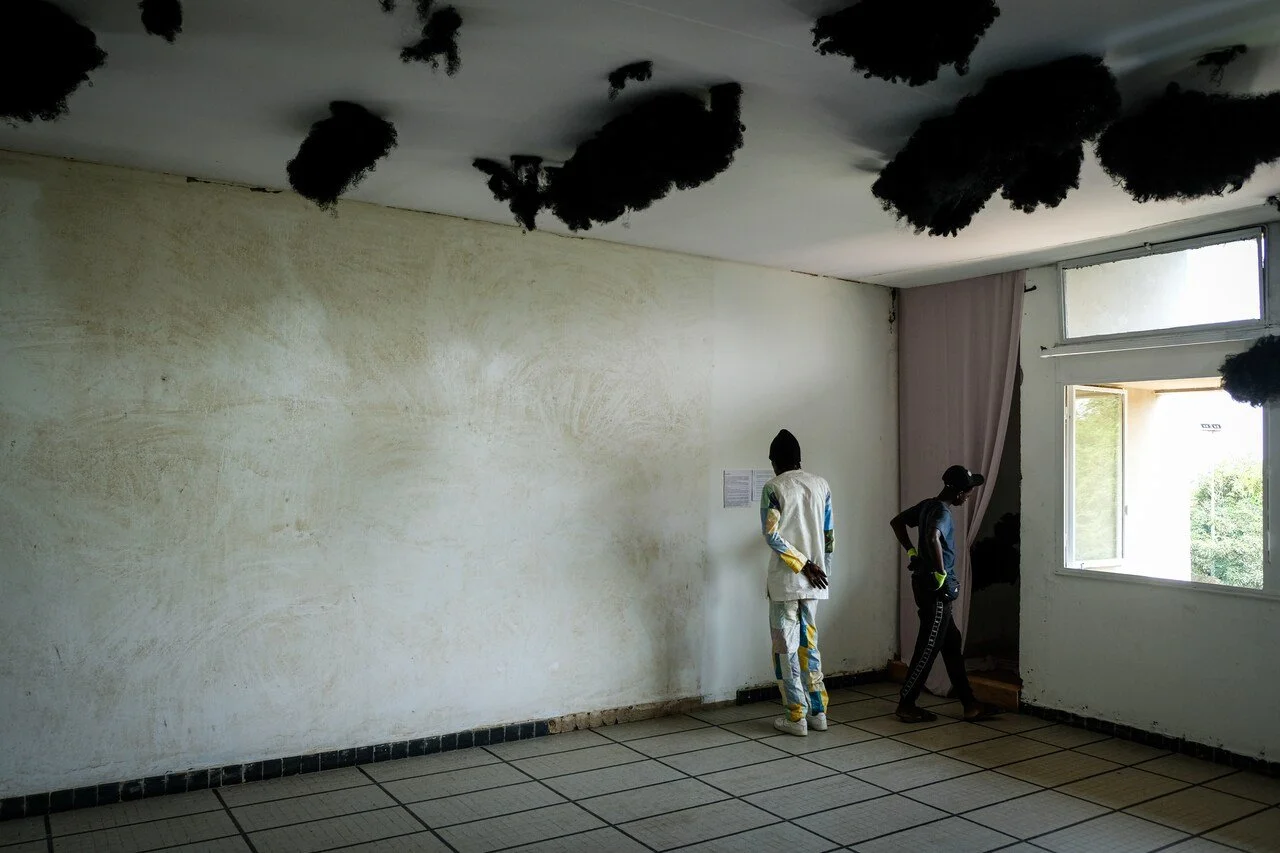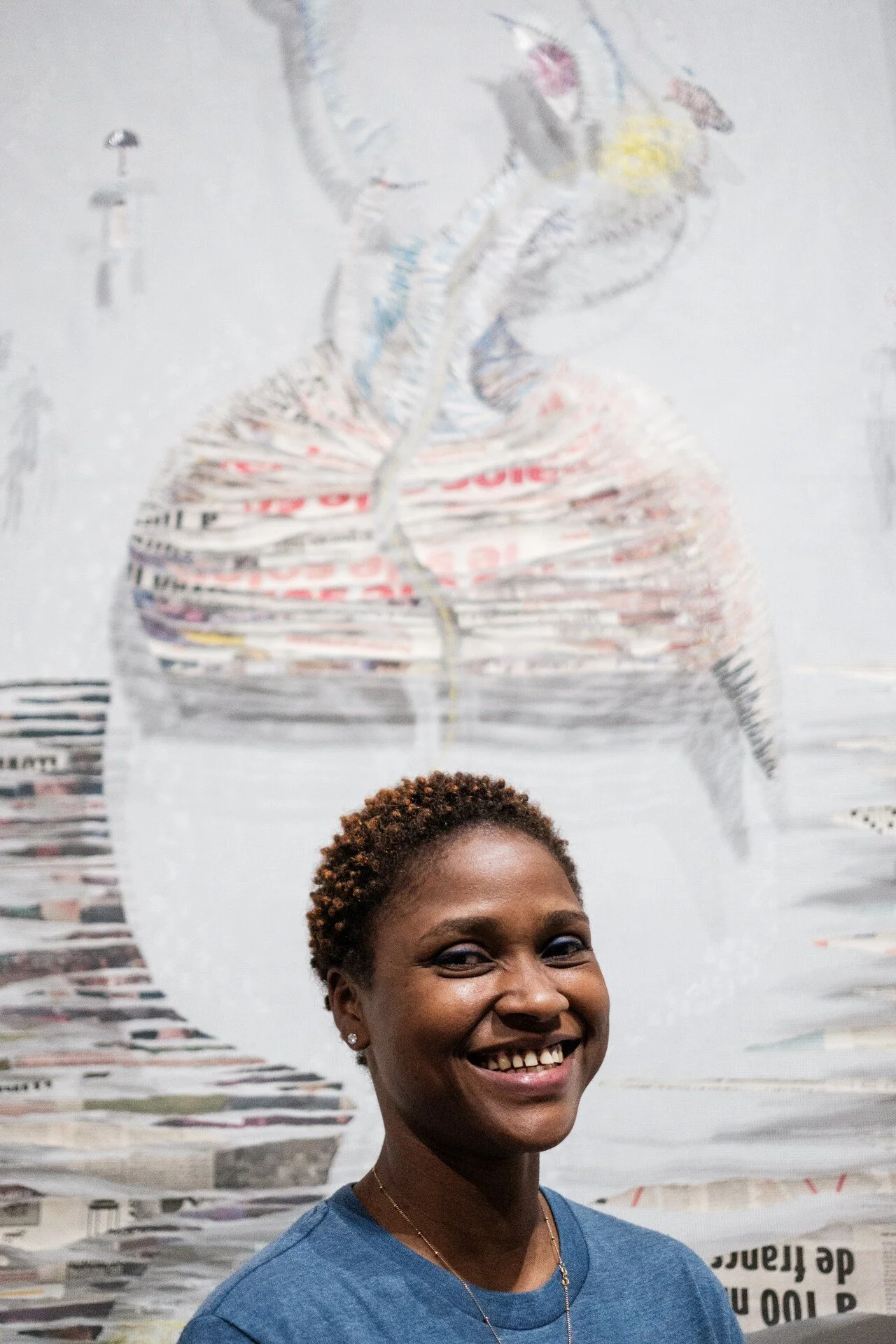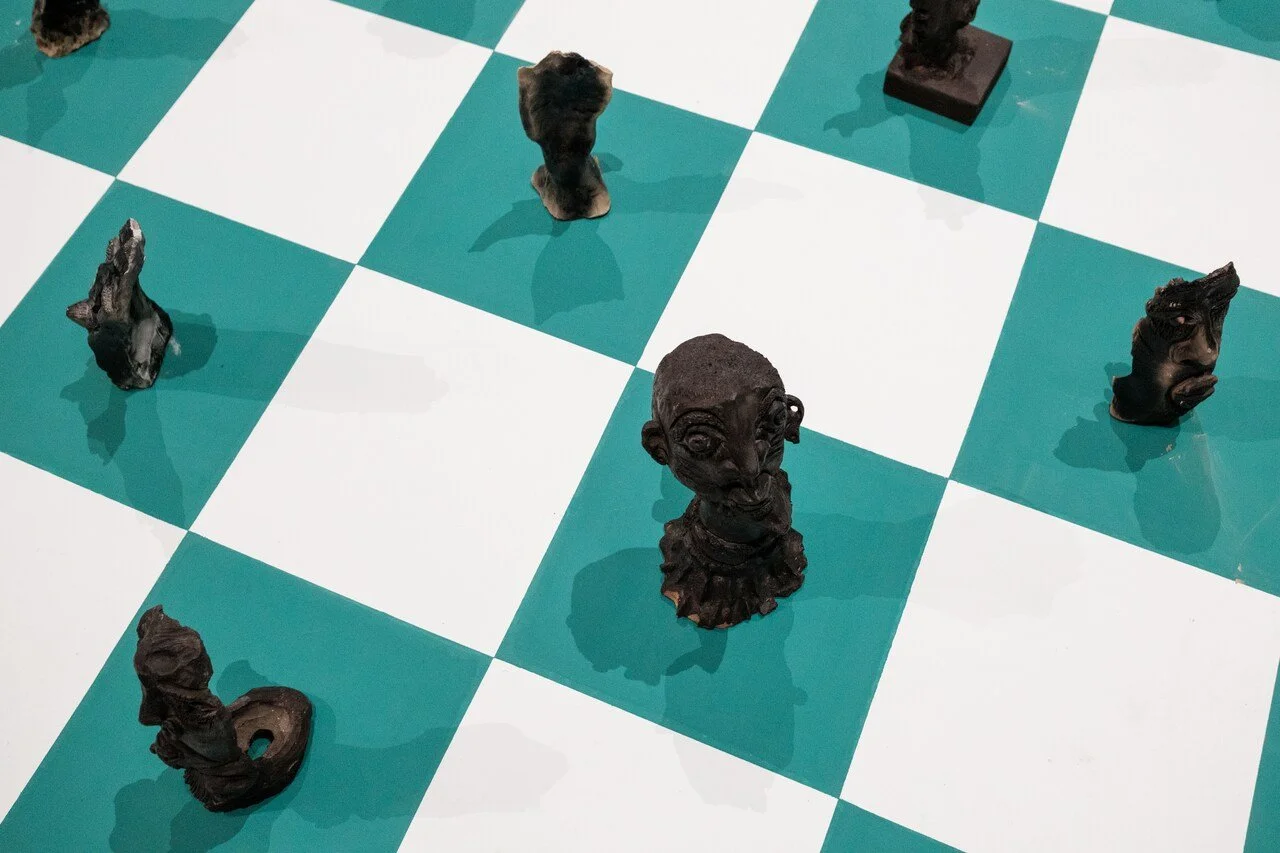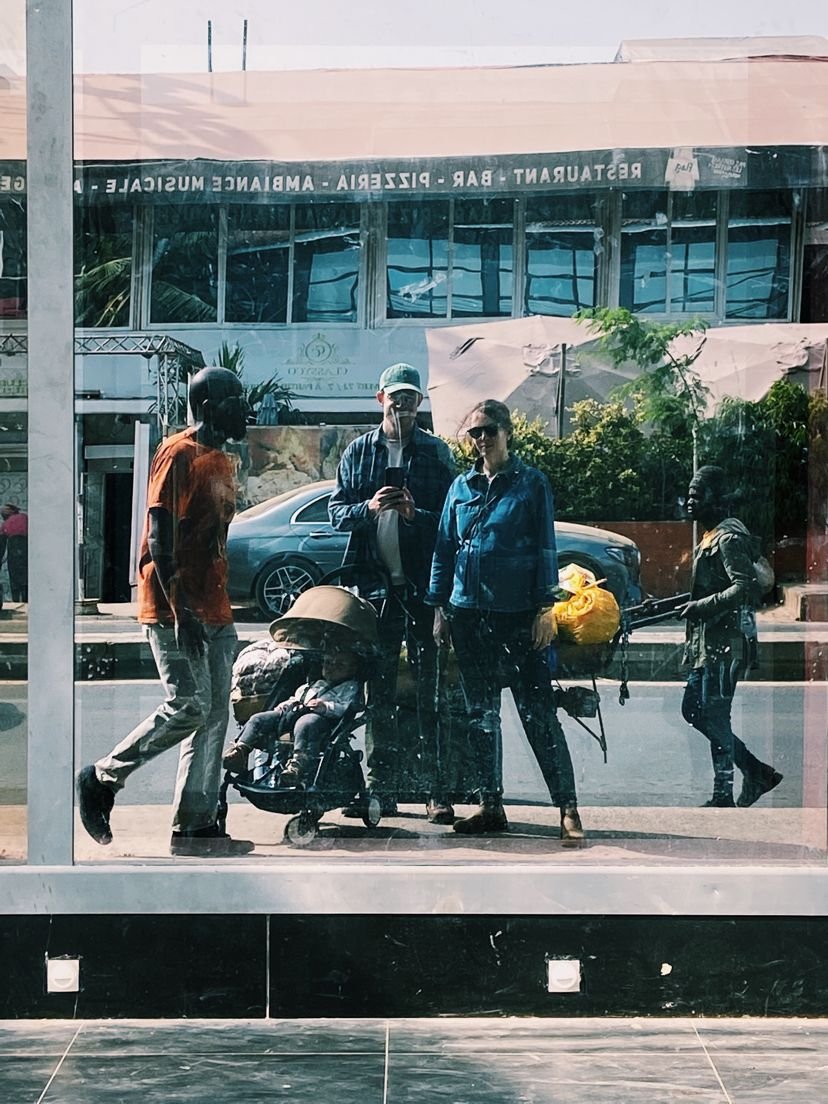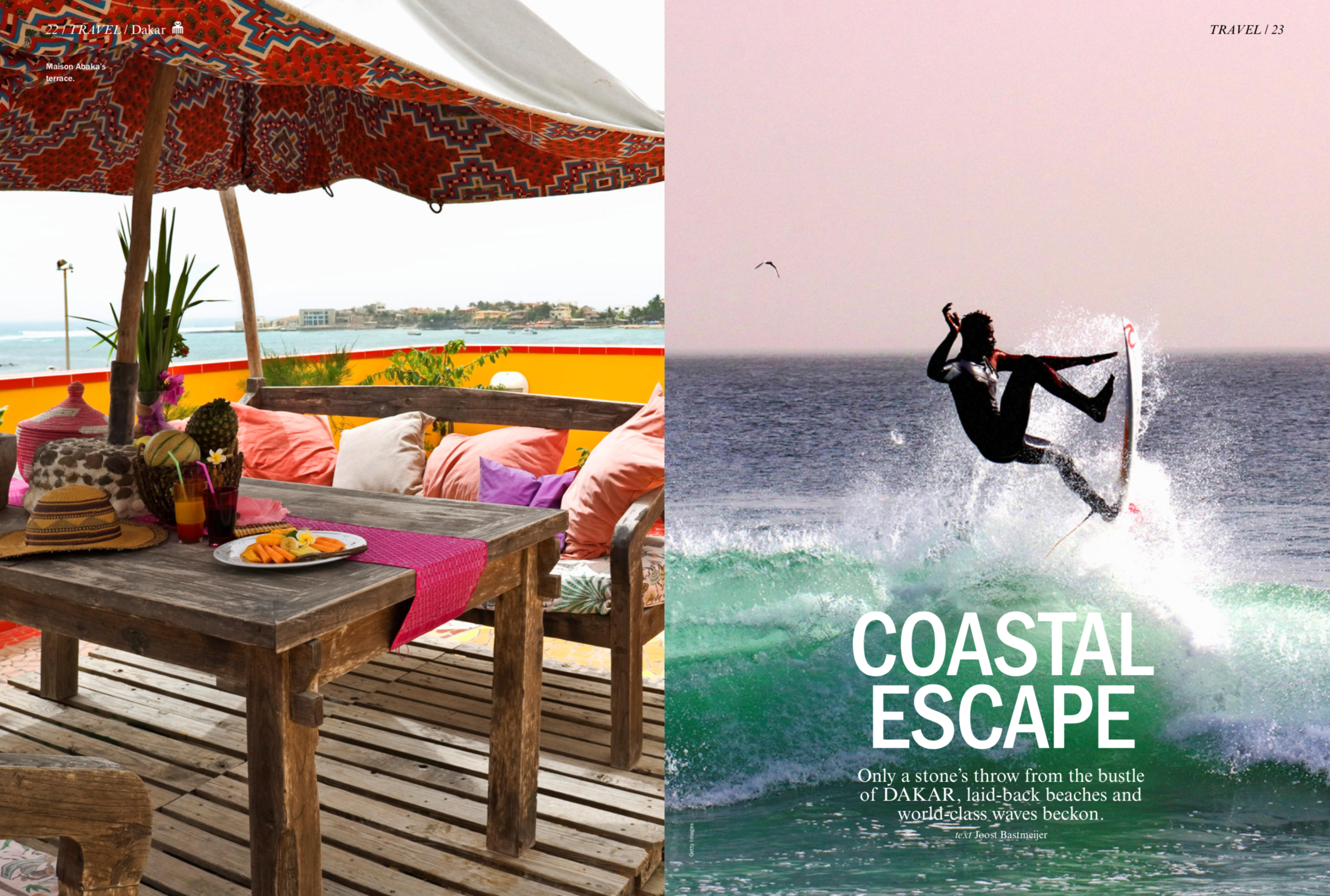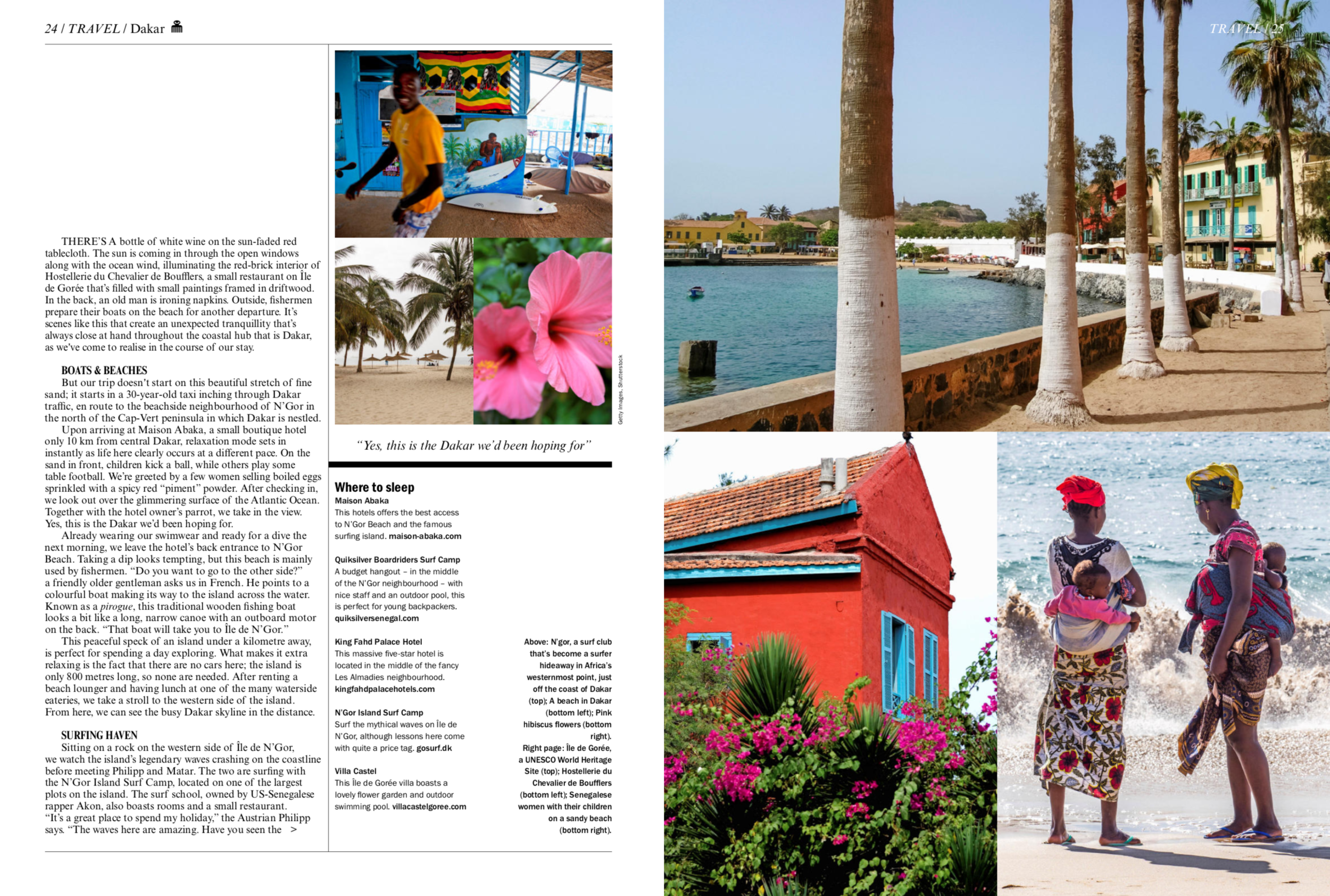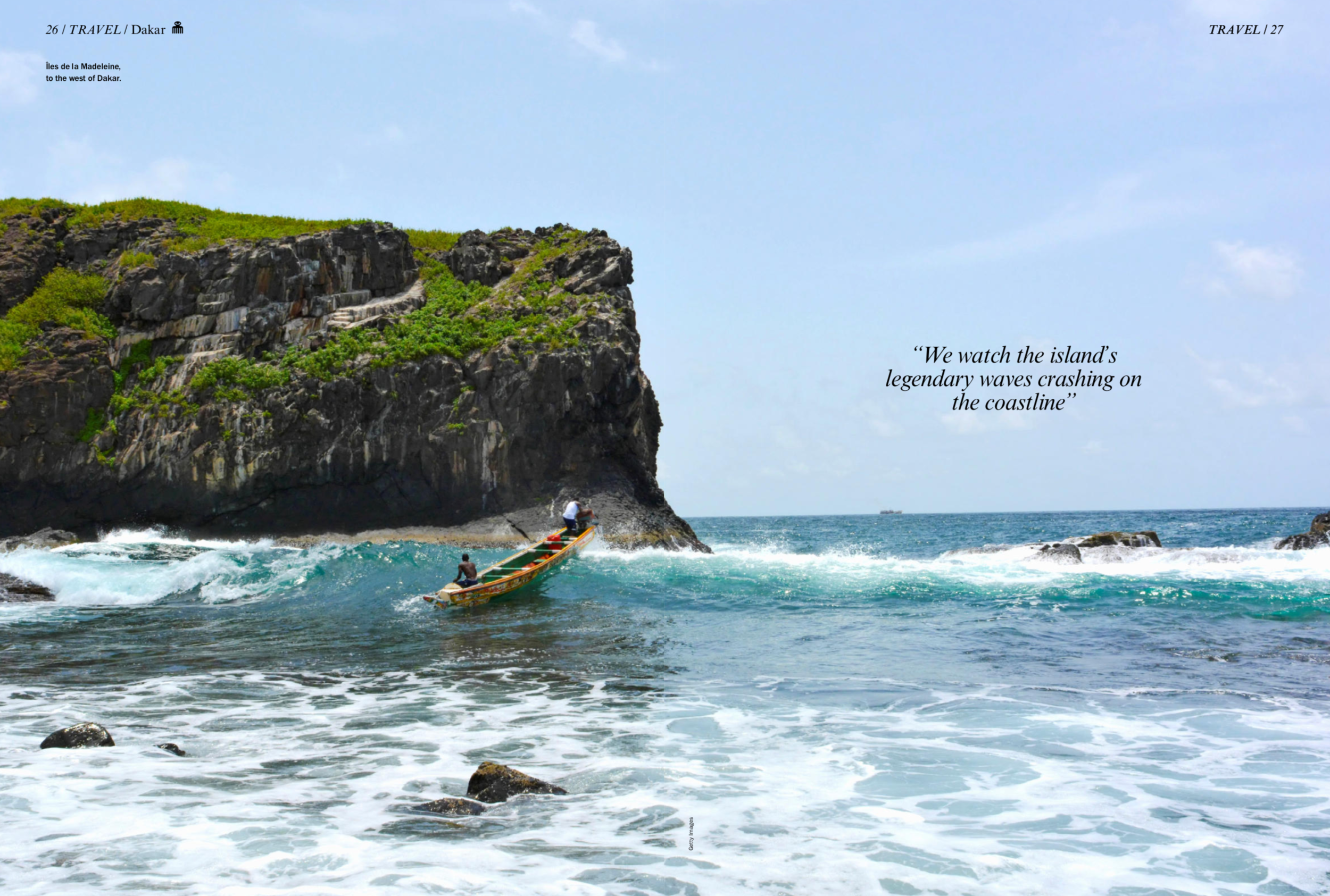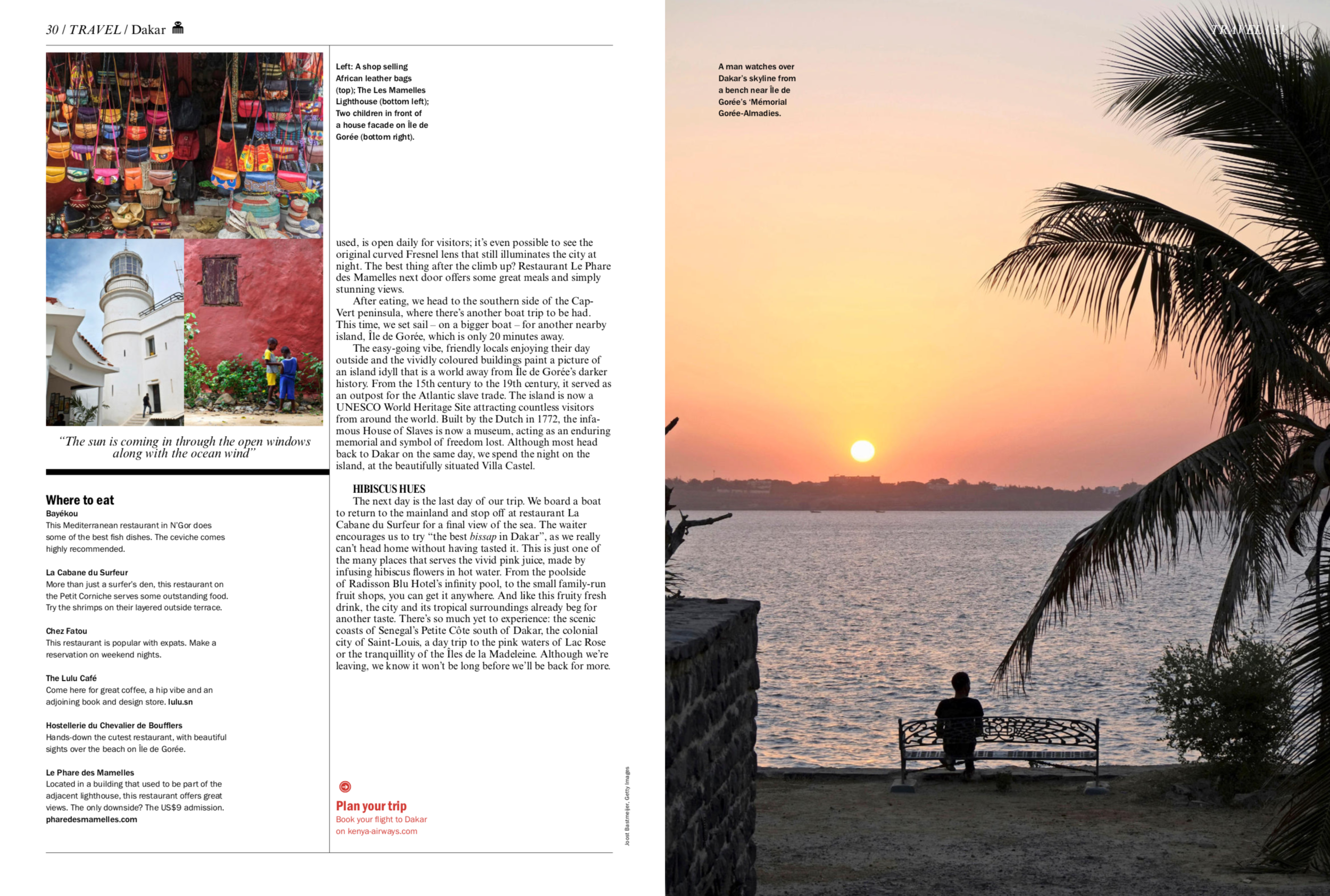The Baye Fall in Senegal firmly believe that endlessly reciting Quranic verses will not bring them closer to paradise. "God loves people who work hard." Read our reportage (pics by Carmen Abd Ali) or listen to De Volkskrant’s Elke Dag podcast to learn more.
Dakar
Religious outsiders in Senegal: the fraternal life of the Baye Fall
On safari in Senegal: visitors simply must see wild animals, even if most have been eaten.
Many Western tourists still primarily see Africa as a savanna teeming with wildlife. Capitalizing on that "Africa feeling," an entrepreneur opened a safari park in Senegal, which is inherently devoid of savanna, with hundreds of animals flown in from South Africa.
Read the full reportage story here, on the De Volkskrant website.
I can't complain about my passport privileges, knowing what it can be like for Africans here.
What do the Volkskrant correspondents face in their daily lives? Today: Africa correspondent Joost Bastmeijer tries to limit complaints about the sometimes excruciatingly long visa procedures. Because without Dutch passport privileges, everything takes much longer.
Last week, it happened again: for the sixth time, I found myself in the sweaty waiting room of the embassy of an unnamed East African country for a visa application. It's probably the least glamorous side of being an Africa correspondent: a large portion of my time is spent writing, completing, and submitting visa and press accreditation applications. For a recent reporting trip, the application process took a full six months.
I try to limit complaints about all that bureaucratic red tape. Because even though it sometimes takes a while, with my Dutch passport, I can eventually enter just about any African country. The reverse is quite different: for the vast majority of Senegalese, applying for a Schengen visa is a humiliating ordeal that makes my visa woes pale in comparison – and then the chance of their application being rejected is also very high.
I'm especially reminded of my passport privileges when I drive through Dakar's bustling working-class neighborhood of Ouakam. From early morning until late at night, crowds of people wait in the blazing sun outside a large office tower. A small white sign on the facade announces that Senegalese can apply here for a visa for Schengen countries such as France, Norway, and the Netherlands.
Slick Salespeople
For most Senegalese, an appointment with this Indian "service provider" is the only way to travel to Europe legally. In theory, any Senegalese can schedule an appointment through the company's website and come to the office in Ouakam at the agreed-upon time, but in practice, there are almost never any spots available through the online portal.
There's a solution, say the slick salespeople I regularly see on social media. The TikTok account "Dakar_Group_Voyage" even has an entire playlist of videos full of visa advice, always stating that the company behind the videos can help with visa applications. The French newspaper Le Monde recently discovered that these rogue companies can help you secure a coveted visa interview for the equivalent of around 75 to 150 euros.
The numerous subcontractors and intermediaries deliberately make the visa process so expensive and complicated, so that fewer visas are actually issued for countries like the Netherlands – a trend that is also apparent in other African countries. At the same time, last year a record number of over 40,000 West Africans attempted to reach the Canary Islands (and therefore Europe) via the perilous "West African boat route." According to the human rights NGO Caminando Fronteras, nearly 10,000 people drowned on that route.
A Thorn in the Side
Most Senegalese visa applicants, however, do not apply for a work visa, but for a "short-stay Schengen visa"; they often want to visit family, or travel to Europe for an event or sporting match. Those who receive such a visa must pay, on top of the costs of the aforementioned intermediaries, an additional €100 in transaction and administration fees.
No guarantees of an approved visa are given during this application process: according to the French embassy, "more than 62 percent" received a "short-stay" Schengen visa last year—meaning that 38 percent of applicants incurred costs for nothing. Recent research shows that African visa applicants spent a staggering €60 million last year on Schengen visas that were ultimately rejected.
The fact that French passport holders can travel to Senegal visa-free, while Senegalese citizens pay a fortune just for the application, is a thorn in the side of Senegalese Prime Minister Ousmane Sonko. In line with his tough stance against former colonizer France, he announced in December that the Senegalese government is working on a "reciprocal visa policy."
So, if you still have a visit to Senegal on your bucket list, don't wait too long: our Dutch passport privileges could soon be gone.
This column was originally published in De Volkskrant (in Dutch). This story was translated to English using Artificial Intelligence.
‘Work by artists from African countries is still on the rise worldwide’
The Dakar Biennial is the most important art event on the African continent. Artists from African countries and the African diaspora exhibit their work throughout the Senegalese capital.
Read the whole reportage story here, on the website of De Volkskrant.
Anti-French sentiments are on the rise in Senegal, and the supermarché is the largest victim
Saucisson, French mustard-flavored chips, six types of Camembert – even the rolls of toilet paper in the Auchan supermarket come from France. That is striking, because this Auchan hypermarché is not on the edge of a French suburb, but in the middle of a residential area of Dakar, the city where my family and I settled a few weeks ago.
Although it is estimated that more than 25 thousand French people live in Senegal, the French supermarket does not only serve the French community: the lion's share of the customers we encounter in the Casino, Auchan and Carrefour supermarkets are Senegalese. The number of Senegalese (from the richer middle and upper class) coming to the Auchan has even increased considerably in recent years, since that big grocer unleashed a price war a few years ago.
The fact that there are so many supermarkets that almost exclusively sell French products says a lot about the close ties that Senegal still has with its former colonizer. Many Senegalese have adopted French eating habits, as I saw when I recently made my first report on baguettes here. More than 8 million typical French baguettes are eaten in Senegal every day, even though the wheat used for the breads cannot grow anywhere in Senegal.
For the story about the baguettes, I spoke to an entrepreneur who wants to get rid of French dependence, a sentiment that more Senegalese companies are responding to. While imported French products often show exactly which region in France they come from, even displaying a proud French flag, there are now more and more companies that consciously profile themselves as a 'Senegalese brand'.
About how those Senegalese brands market themselves, the growing anti-French sentiment in Senegal and its neighboring countries and what French companies (which together are responsible for a quarter of Senegalese GDP) like Auchan are trying to turn the tide , you can read in this column that I wrote for de Volkskrant here.
We have moved to Dakar!
After a bit more than 5 years in Kenya, it’s time to focus a bit more on the Western side of the African continent. That’s why Saskia and I, with our daughter Lou (and upcoming second daughter) have moved to Dakar, the capital of Senegal. Saskia will be working as the West Africa Correspondent of Dutch broadcaster NOS, whereas I will still be covering the entire Sub Sahara part of Africa for De Volkskrant.
Travel story about Dakar - New work for Msafiri Magazine
For this month’s Msafiri, the inflight magazine of Kenya Airways, I created the ‘lead travel story’ about Dakar, Senegal, focusing on where to eat, sleep and stay. Above, you can read how I described my trip to the Senegalese capital (some photos are mine, too). To read the whole issue of Msafiri, you can click here!
If you’d like to read more travel stories, you can click here for my piece on Ethiopia (including Lalibela, Gondar, Addis Ababa and Bahir Dar) or click here for my Uganda travel story (focusing on Kampala, Queen Elizabeth National Park and Bwindi).




























